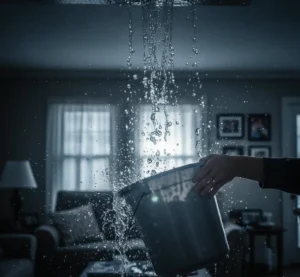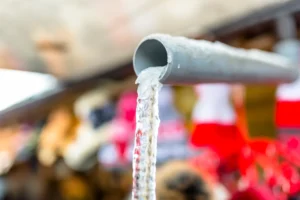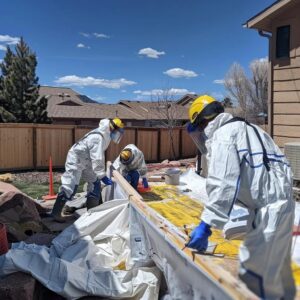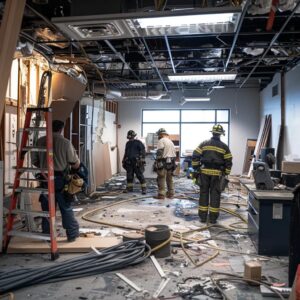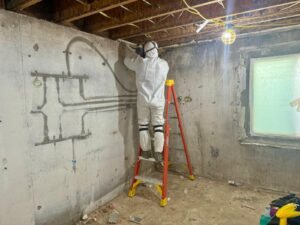Fast, Reliable 24-Hour Water Extraction Services in Denver, Colorado
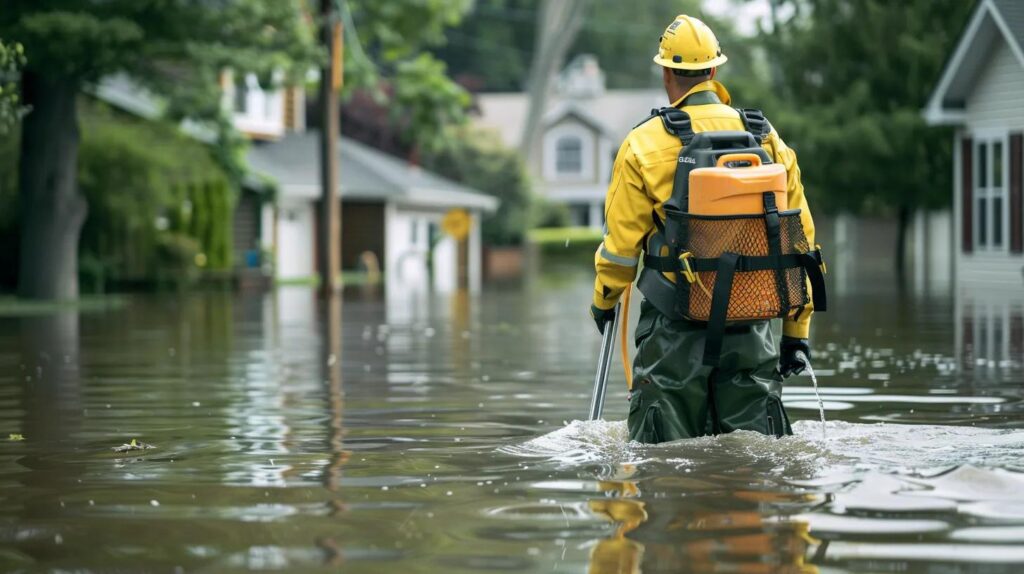
When water intrudes unexpectedly, every minute counts—24 hour water extraction services stop damage escalation from the first call. Homeowners and business owners in Denver, Boulder, and Colorado Springs rely on Elyon Restoration’s emergency water removal expertise to halt mold growth, structural decay, and health risks. This article explains why immediate extraction matters, outlines our step-by-step 24/7 process, clarifies water damage classifications, details our local coverage in the Denver metro area, previews cost and insurance guidance, highlights Elyon Restoration’s unique value, and offers prevention tips to protect your property long-term, considering Denver’s semi-arid climate and potential for flash floods.
Why Is Immediate 24-Hour Water Extraction Crucial for Emergency Water Damage in Denver?
The Importance of Immediate Water Extraction
Delaying water extraction in Denver’s climate can lead to significant structural damage and the growth of mold, which can compromise the integrity of building materials within a short timeframe, especially with the rapid temperature fluctuations common in Colorado. Prompt action is crucial to mitigate these risks and prevent further complications.
This manual provides industry-standard guidelines for water damage restoration, which supports the article’s emphasis on the importance of immediate action, particularly relevant in areas prone to sudden weather changes like Denver.
Delaying water extraction allows moisture to penetrate building materials, creating ideal conditions for mold spores and compromising structural integrity within 24–48 hours. Denver’s dry air can sometimes mask underlying moisture issues, making professional assessment even more critical.
How Does Delaying Water Extraction Increase Mold and Structural Damage Risks in Denver?
Rapid moisture removal prevents hidden saturation that leads to mold colonization and wood rot. Within two days, mold can colonize drywall seams and behind baseboards, threatening indoor air quality and weakening support beams. Addressing standing water immediately interrupts this progression and preserves building components, a vital step in Denver’s diverse housing stock, from historic homes to modern constructions.
What Are the Key Benefits of Rapid Water Removal and Damage Mitigation in Denver?
- Mold Prevention – Eliminates moisture before microbial growth begins, crucial in Denver’s variable humidity levels.
- Structural Preservation – Protects framing, plaster, and flooring from warping or corrosion, especially important for Denver’s foundational integrity.
- Cost Reduction – Minimizes repair scope by limiting damage to the initial wet area, saving homeowners money.
Securing these benefits early lays the groundwork for efficient restoration and return to normalcy.
How Does Fast Response Protect Your Property and Health in Denver?
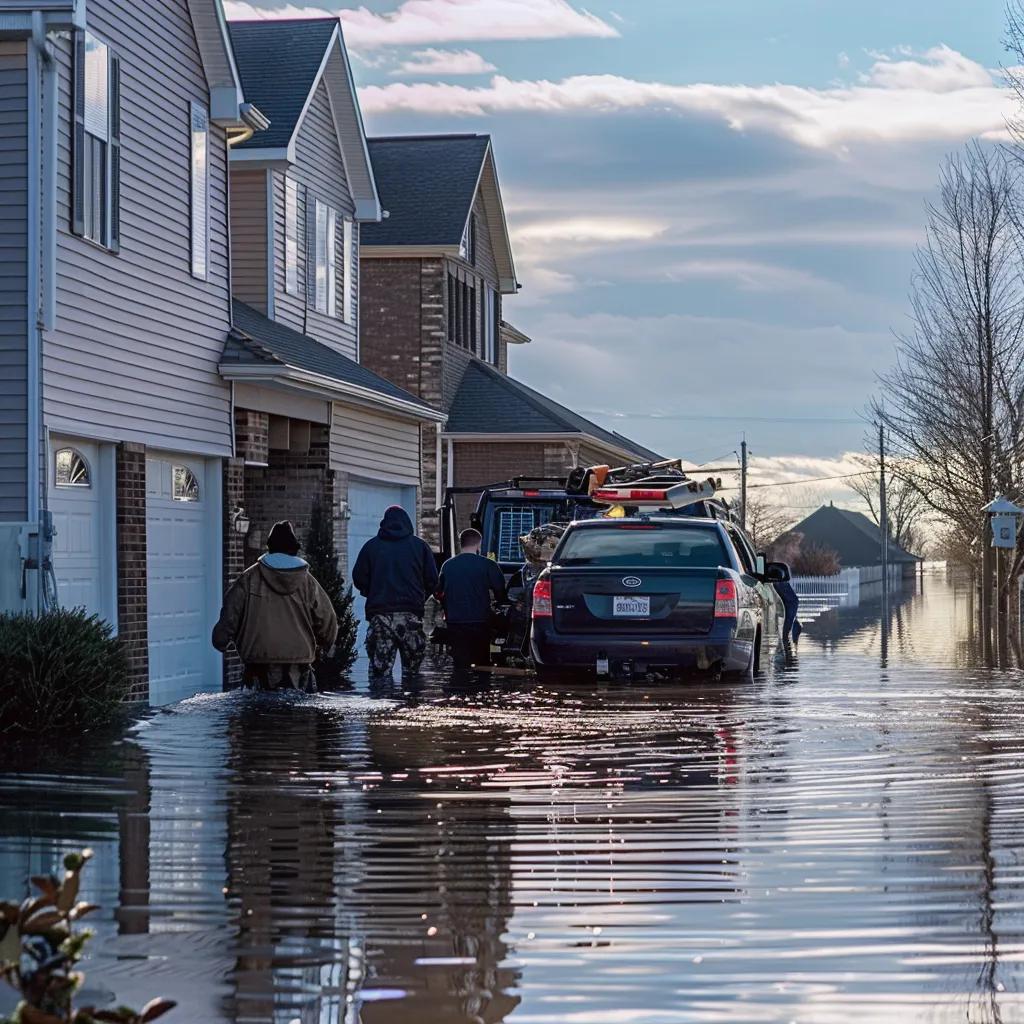
A swift on-site arrival means technicians can evaluate water category and class immediately, deploy industrial pumps and air movers within hours, and apply antimicrobial treatments to inhibit mold. This proactive approach safeguards occupants from allergens and structural hazards while accelerating recovery, particularly important in Denver where rapid temperature shifts can exacerbate moisture problems.
Don't Let Water Damage Ruin Your Denver Property!
Every minute lost to water intrusion increases the risk of mold and structural compromise. Our 24/7 emergency response team is ready to act fast to protect your home or business.
What Is the Step-by-Step 24/7 Emergency Water Extraction Process?
Elyon Restoration’s 24/7 emergency water extraction process follows IICRC standards, ensuring each phase builds on the previous for complete restoration.
How Is the Initial Rapid Assessment and Inspection Conducted in Denver?
The team conducts a thorough walkthrough to identify water sources, categorize contamination level, and measure moisture with thermal imaging and hygrometers. This assessment defines remediation scope and informs equipment selection, tailored to Denver’s specific building materials and environmental conditions.
What Powerful Water Extraction Techniques and Equipment Are Used?
- Submersible pumps for deep water removal
- High-capacity wet/dry vacuums for residual moisture
- Truck-mounted extraction units for commercial sites
These tools achieve up to 98% water recovery, preventing further penetration, essential for Denver’s varied soil types and potential for groundwater intrusion.
How Does Thorough Drying and Dehumidification Prevent Further Damage in Denver Properties?
Drying uses high-velocity air movers and industrial dehumidifiers to reduce humidity below 50% within 24–48 hours. This controlled environment halts mold spore germination and protects wood, drywall, and HVAC systems from moisture retention, a critical step in Denver’s often dry but fluctuating climate.
What Mold Prevention and Remediation Steps Are Included in Denver?
Antimicrobial treatments target exposed surfaces, while negative-air containment and HEPA filtration remove airborne spores. Following IICRC S520 guidelines, technicians apply EPA-registered biocides and perform mold testing to verify clearance before restoration continues, ensuring a healthy environment for Denver residents.
How Are Cleaning, Sanitization, and Restoration Completed After Extraction?
Final steps include:
- Cleaning and sanitizing structural materials and personal belongings
- Deodorization with eco-friendly agents
- Minor repairs such as drywall replacement and baseboard installation
This comprehensive approach restores property to pre-loss condition and ensures a healthy indoor environment for Denver homeowners.
How Are Different Types and Categories of Water Damage Classified?
Water Damage Categories and Classes
Understanding the different categories and classes of water damage is essential for determining the appropriate extraction and drying methods. These classifications help professionals assess the severity of the damage and implement the most effective restoration strategies, considering Denver’s unique environmental factors.
This EPA document provides guidance on mold remediation, which is relevant to the article’s discussion of water damage categories and the need for professional intervention.
Before comparing categories, note that each classification demands specific safety measures and disposal procedures, especially relevant in Denver’s urban and suburban settings.
| Category | Definition | Risk Level |
|---|---|---|
| Category 1 | Clean water from supply lines or rain | Low – no contaminants |
| Category 2 | Gray water from appliances or sink overflow | Medium – contains chemicals |
| Category 3 | Black water from sewage or flood runoff | High – pathogenic hazards |
These categories guide protective gear requirements and disposal protocols before extraction begins, ensuring safety for both technicians and Denver residents.
| Class | Description | Drying Difficulty |
|---|---|---|
| Class 1 | Minor moisture penetration | Easy |
| Class 2 | Significant moisture to walls and flooring | Moderate |
| Class 3 | Saturated ceilings, walls, and insulation | Challenging |
| Class 4 | Specialty drying for low-porosity materials | Complex |
Knowing the class determines equipment needs and projected drying times for each affected material, crucial for efficient restoration in Denver.
Which Areas Do Elyon Restoration’s 24 Hour Water Extraction Services Cover in Colorado?
What Emergency Water Extraction Services Are Available in Denver and the Metro Area?
In Denver boroughs and surrounding areas, our teams respond within hours to flooded basements, burst pipe leaks, and building envelope breaches. We navigate municipal regulations and high-rise protocols to deliver fast recovery, addressing common issues like snowmelt runoff and plumbing failures in Denver’s diverse properties.
How Does Elyon Serve Colorado with Rapid Water Damage Restoration?
Colorado operations cover the Front Range, from Fort Collins down to Colorado Springs, addressing basement flooding, sink backups, and storm damage. Local crews provide swift extraction and drying to minimize business disruption and residential impact, understanding the specific challenges of Colorado’s climate.
What Water Extraction Solutions Are Offered in Boulder and Surrounding Communities?
Boulder services focus on properties susceptible to flash floods from nearby foothills and older homes with aging plumbing. Our portable units and containment systems restore safety and comfort to flooded properties in Boulder, Longmont, and beyond, adapting to the unique geographical risks of the region.
Are There Services for Specific Neighborhoods or Counties Within the Denver Metro Area?
Hyper-local teams specialize in areas like Denver’s Highlands, Cherry Creek, and surrounding counties such as Arapahoe and Jefferson. Consistent coverage ensures compliance with local codes and familiar engagement with insurance adjusters, providing tailored service for Denver’s distinct neighborhoods.
How Much Do 24 Hour Water Extraction Services Cost and Does Insurance Cover Them in Denver?
What Factors Influence the Cost of Emergency Water Extraction in Denver?
- Water category (clean to black water)
- Damage class (drying complexity)
- Affected square footage
- Emergency response hours and weekend scheduling
These factors determine labor, equipment hours, and chemical treatment needs, with pricing adjusted for the Denver market.
How Can Elyon Restoration Assist with Insurance Claims for Water Damage in Denver?
Elyon Restoration documents damage with moisture maps, photographs, and detailed reports. Our team coordinates with adjusters, submits estimates via Xactimate, and advocates for comprehensive coverage under homeowners or commercial policies, streamlining the claims process for Denver residents.
How Can I Get a Free Estimate for 24 Hour Water Extraction Services in Denver?
To secure a complimentary on-site assessment and no-obligation estimate, call our 24/7 hotline or request service via our online form. Technicians arrive promptly to evaluate conditions and outline restoration plans, providing transparent pricing for Denver properties.
What Common Insurance Questions Are Asked About Water Damage Coverage in Denver?
- Does my policy cover sewer backups or sump pump failures, common issues in Denver’s older infrastructure?
- Will emergency mitigation expenses be reimbursed?
- How do deductibles and depreciation affect my payout?
Understanding policy terms ensures clarity during claims processing and faster project commencement, especially when dealing with Denver-based insurance providers.
Why Choose Elyon Restoration for Your 24/7 Emergency Water Extraction Needs in Denver?
How Do IICRC Certified Technicians Ensure Quality Water Damage Restoration in Denver?
Our technicians hold IICRC S500 Water Damage Restoration and WRT certifications, guaranteeing adherence to industry best practices and recognized standards throughout extraction and drying, ensuring top-quality service for Denver properties.
What Advanced Equipment Does Elyon Use for Effective Water Extraction in Denver?
We utilize truck-mounted extraction units, industrial-grade desiccant dehumidifiers, and real-time moisture mapping technology. This equipment synergy accelerates drying and verifies environmental safety, optimized for Denver’s climate and building types.
How Does Elyon Guarantee 24/7 Availability and Rapid Response in Denver?
With strategically located dispatch centers and GPS-tracked service vehicles, Elyon Restoration ensures an average on-site response within hours—any day, any time, providing reliable emergency services across the Denver metropolitan area.
What Do Customers Say About Elyon’s Emergency Water Extraction Services in Denver?
How Can You Prevent Future Water Damage and Mold After Emergency Extraction in Denver?
What Are Effective Mold Prevention Tips Following Water Damage in Denver?
- Maintain indoor humidity below 50% with dehumidifiers, especially important in Denver’s dry climate.
- Inspect for hidden moisture under carpets and behind walls, common in older Denver homes.
- Apply mold-resistant paints in basements and bathrooms.
Consistent monitoring and prompt drying reinforce long-term mold control, crucial for maintaining healthy living environments in Denver.
How Can Regular Maintenance Reduce the Risk of Burst Pipes and Flooding in Denver?
- Schedule annual plumbing inspections, particularly important for Denver’s freeze-thaw cycles.
- Insulate exposed pipes to prevent freezing and bursting.
- Test sump pump operation before heavy rainfall seasons or snowmelt periods.
Preventive servicing identifies vulnerabilities before they escalate into emergencies, protecting Denver properties from water damage.
When Should You Schedule Professional Inspections to Avoid Emergencies in Denver?
- After significant weather events, such as heavy snowmelt or thunderstorms common in Colorado.
- Before listing or selling a property in the Denver real estate market.
- During routine home maintenance cycles to catch potential issues early.
Upholding scheduled inspections preserves property value and safeguards against unanticipated water intrusions, ensuring peace of mind for Denver homeowners.
Secure Your Property's Future: Prevent Further Damage
Don’t wait for a small leak to become a major disaster. Proactive prevention and swift action are key to protecting your Denver home or business. Get expert advice and immediate assistance.
Elyon Restoration’s rapid-response water extraction delivers essential protection when every minute counts. Through certified technicians, cutting-edge equipment, and transparent insurance assistance, property owners gain reliable support throughout Denver and the surrounding Colorado areas. To stop water damage in its tracks, request your free estimate or emergency service at elyonrestoration.com or call our 24/7 hotline now.

